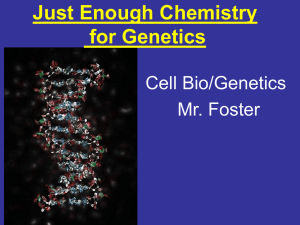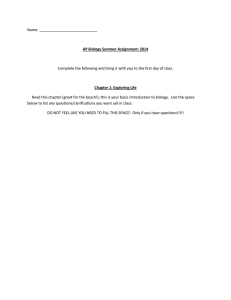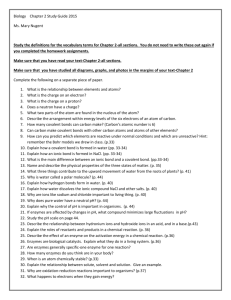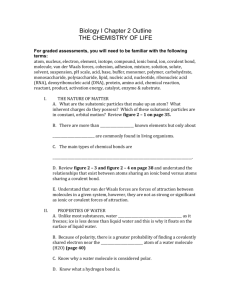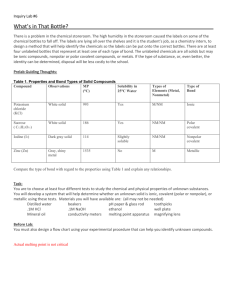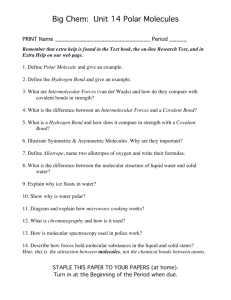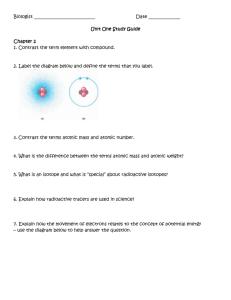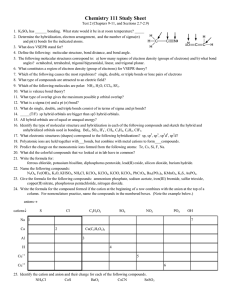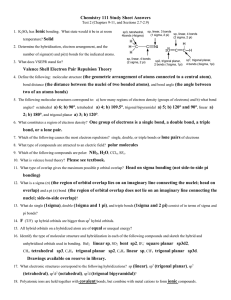Just Enough Chemistry for Genetics Cell Bio/Genetics Mr. Foster
advertisement
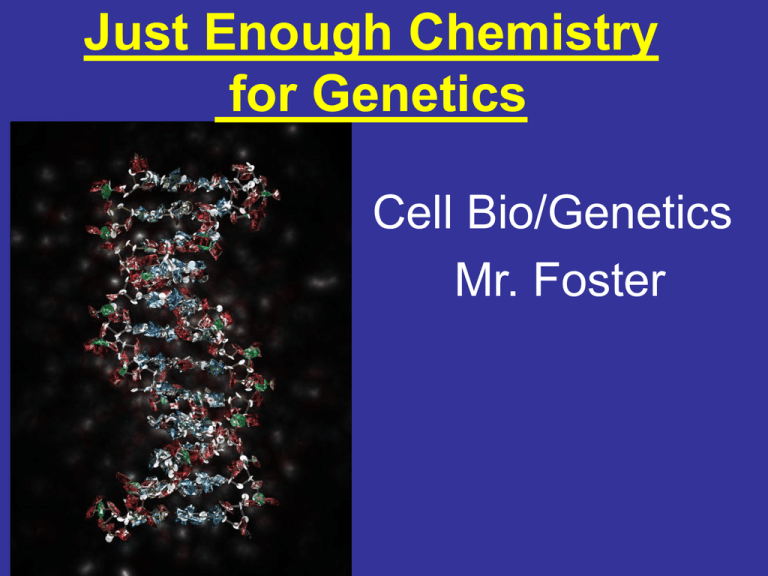
Just Enough Chemistry for Genetics Cell Bio/Genetics Mr. Foster Types of Bonds • Ionic Bond–Ion - atom that has gained or lost electrons (e-’s) –Transfer of e-’s b/t 2 atoms –Metals and nonmetals (ex. NaCl) • Covalent Bond–Share e-’s equally –Nonmetal and nonmetal (ex. H2O) Covalent Bond Types of Bonds (cont.) • Polar Covalent Bond– e-’s are shared unevenly – One atom holds e-’s closer (electronegativity) – H2O O • Hydrogen Bond- H H – A slightly +H of a polar cov. bond in one molecule is attracted to a slightly neg. atom of another molecule (WEAK) – Ex. H with O, F, N Compounds of Life • Organic- contain carbon VERY IMPORTANT • Inorganic- usually do not contain carbon Organic • Form chains or rings Benzene • Form strong stable bonds • Form 4 bonds Methane Compounds of Life (cont.) 1. Water – Most abundant compound in living organisms – Uneven distribution of electrons • • - Polar molecule Give water unique characteristics – Wide range of temp. is liquid – Good solvent- dissolves many substances O H H + Compounds of Life (cont.) 2. Carbohydrates – C, H and O – Sugar & Starches (Glucose) (Glycogen) – Functions • Provide energy • Contribute to cellular structure – Hydroxyl functional group (R-OH) Compounds of Life (cont.) 3. Lipids – C, H, O – Fats, oils, Waxes – Carboxyl group – (COOH) OH R ? Compounds of Life (cont.) 4. Proteins – – – – C,H,O and N Amino acids- building blocks Functional group – amine group Functions • • Structure Enzymesbiological catalysts Enzymes Substrate- (X) reactants effected by enzyme Enzymes are very Enzyme Active Site specific Enzymes are sensitive to temperature and pH Compounds of Life (cont.) 5. Nucleic Acids (DNA, RNA) –C, H, O, N, P –Building blocks Nucleotide –Functional Group- phosphate group –Functions • Store genetic info. • Transmit genetic info.
